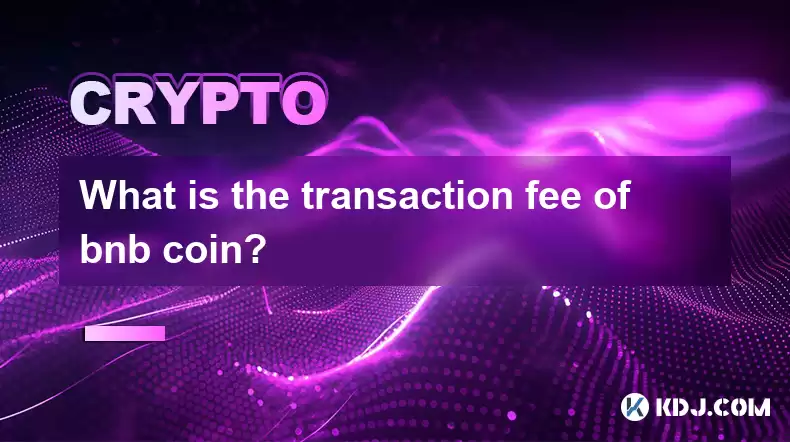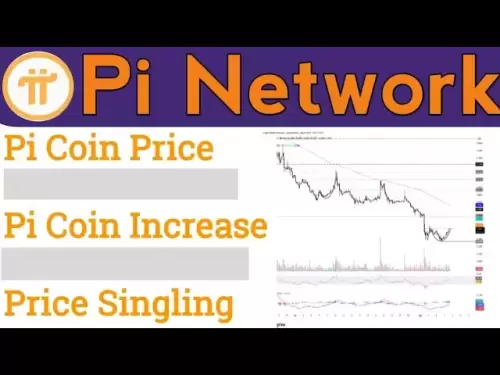-
 Bitcoin
Bitcoin $118300
1.01% -
 Ethereum
Ethereum $4215
0.69% -
 XRP
XRP $3.198
-3.83% -
 Tether USDt
Tether USDt $1.000
-0.01% -
 BNB
BNB $803.4
-0.53% -
 Solana
Solana $180.3
-0.67% -
 USDC
USDC $0.9998
-0.01% -
 Dogecoin
Dogecoin $0.2334
-1.49% -
 TRON
TRON $0.3394
0.86% -
 Cardano
Cardano $0.7980
-1.45% -
 Chainlink
Chainlink $22.19
6.65% -
 Hyperliquid
Hyperliquid $43.41
0.13% -
 Stellar
Stellar $0.4407
-3.13% -
 Sui
Sui $3.843
-2.24% -
 Bitcoin Cash
Bitcoin Cash $564.7
-3.74% -
 Hedera
Hedera $0.2588
-3.41% -
 Ethena USDe
Ethena USDe $1.001
0.00% -
 Avalanche
Avalanche $23.64
-3.37% -
 Litecoin
Litecoin $120.0
-4.01% -
 Toncoin
Toncoin $3.342
-1.11% -
 UNUS SED LEO
UNUS SED LEO $9.038
0.60% -
 Shiba Inu
Shiba Inu $0.00001347
-0.81% -
 Uniswap
Uniswap $10.69
-4.58% -
 Polkadot
Polkadot $4.034
-1.30% -
 Dai
Dai $1.000
0.01% -
 Bitget Token
Bitget Token $4.472
-1.52% -
 Cronos
Cronos $0.1571
-3.04% -
 Pepe
Pepe $0.00001207
-2.21% -
 Monero
Monero $273.8
-3.19% -
 Ethena
Ethena $0.7520
2.75%
What is the transaction fee of bnb coin?
BNB transaction fees are dynamic, varying based on network congestion and transaction size; fees, paid in BNB, are adjustable via gas fees to prioritize speed, requiring careful monitoring for efficient usage across different platforms.
Mar 04, 2025 at 05:55 pm

Key Points:
- BNB transaction fees are dynamic and depend on network congestion.
- Fees are paid in BNB itself.
- Several factors influence the transaction fee, including the size of the transaction and network demand.
- Users can adjust the gas fee to prioritize transaction speed.
- Understanding fee structures is crucial for efficient BNB usage.
- Various wallets and exchanges display fees differently.
What is the Transaction Fee of BNB Coin?
The transaction fee for BNB (Binance Coin) isn't a fixed amount. Unlike some cryptocurrencies with static fees, BNB's transaction costs fluctuate based on the current network conditions. This dynamic fee system is designed to adapt to the level of network activity. When the network is busy, with many transactions occurring simultaneously, the fees naturally increase. Conversely, during periods of low activity, fees tend to be lower. This mechanism helps to maintain the efficiency of the Binance Smart Chain (BSC).
Factors Affecting BNB Transaction Fees:
Several factors contribute to the final transaction fee you'll pay when using BNB. Firstly, the size of your transaction plays a crucial role. Larger transactions, such as those involving many tokens or complex smart contracts, typically incur higher fees. This is because they consume more computational resources on the network. Secondly, and perhaps most significantly, network congestion significantly impacts the fee. High network demand means more users are vying for transaction processing, leading to a competitive bidding system for transaction prioritization.
How are BNB Transaction Fees Calculated?
The fee calculation isn't a simple formula. It's a complex algorithm that considers the factors mentioned above. The core component is the "gas fee," expressed in gwei (a unit of BNB). The gas fee represents the computational resources required for your transaction. The higher the gas fee you set, the faster your transaction is likely to be processed. This is because miners prioritize transactions with higher gas fees, ensuring quicker confirmation times. The total fee is the product of the gas used and the gas price.
How to Minimize BNB Transaction Fees:
While you can't entirely eliminate fees, you can employ strategies to minimize them. One effective approach is to conduct transactions during periods of low network activity. Typically, off-peak hours (depending on your geographical location and the overall user base) tend to have lower transaction fees. Another strategy is to adjust the gas fee. While setting a lower gas fee might result in a longer processing time, it will reduce the overall cost. However, setting it too low might result in your transaction not being processed at all.
Paying BNB Transaction Fees:
You pay the transaction fees directly in BNB. This means you need to have a sufficient BNB balance in your wallet to cover both the transaction amount and the associated fees. Failing to have enough BNB will result in the transaction failing. Before initiating any transaction, always check your wallet's displayed fee estimate to ensure you have enough funds. The displayed fee should include both the network fee and any additional charges imposed by the specific wallet or exchange you're using.
Different Wallets and Exchanges Display Fees Differently:
The way transaction fees are displayed can vary depending on the wallet or exchange you use. Some platforms provide a clear breakdown of the fee components, while others might present a single, consolidated fee amount. Always carefully review the fee information before confirming your transaction. Inconsistencies in fee presentation across different platforms are common, so understanding how your chosen platform calculates and displays fees is essential.
Understanding Gas Fees:
The concept of "gas" is central to understanding BNB transaction fees. Gas represents the unit of computation required to execute a transaction on the Binance Smart Chain. Each operation within a transaction consumes a certain amount of gas. The gas price, expressed in gwei (a unit of BNB), determines the cost per unit of gas. The total gas fee is calculated by multiplying the gas used by the gas price. This fee is crucial for incentivizing miners to process transactions.
Network Congestion and Its Impact:
Network congestion, as mentioned earlier, is a primary driver of fluctuating BNB transaction fees. When many users are simultaneously trying to conduct transactions, the demand for network resources increases. This increased demand leads to a rise in gas prices, resulting in higher transaction fees. Conversely, during periods of low network activity, gas prices decrease, making transactions more affordable. Monitoring network congestion is beneficial in predicting and managing transaction costs.
Choosing the Right Gas Fee:
Choosing an appropriate gas fee is a balancing act between speed and cost. Setting a high gas fee ensures rapid transaction processing but incurs a higher fee. Conversely, setting a low gas fee results in a lower fee but may lead to longer processing times or even transaction failure. The optimal gas fee depends on your individual needs and tolerance for waiting. Many wallets offer suggestions for appropriate gas fees based on current network conditions.
Common Questions and Answers:
Q: Are BNB transaction fees fixed?
A: No, BNB transaction fees are dynamic and vary depending on network congestion and transaction complexity.
Q: What currency are BNB transaction fees paid in?
A: BNB transaction fees are always paid in BNB itself.
Q: How can I reduce my BNB transaction fees?
A: You can reduce fees by transacting during off-peak hours or by adjusting the gas fee to a lower value (accepting potentially slower processing times).
Q: What factors influence the size of the BNB transaction fee?
A: Transaction size, network congestion, and the gas price all influence the final fee.
Q: Where can I find information on current BNB transaction fees?
A: Most wallets and exchanges that support BNB will display estimated fees before you confirm a transaction. You can also find information on blockchain explorers dedicated to the Binance Smart Chain.
Q: What happens if I don't have enough BNB to cover the transaction fee?
A: Your transaction will fail. Always ensure you have sufficient BNB to cover both the transaction amount and the estimated fees.
Q: Is there a minimum BNB transaction fee?
A: There isn't a fixed minimum, but very small transactions may still have a small fee due to the gas required for processing. The effective minimum depends on current network conditions.
Disclaimer:info@kdj.com
The information provided is not trading advice. kdj.com does not assume any responsibility for any investments made based on the information provided in this article. Cryptocurrencies are highly volatile and it is highly recommended that you invest with caution after thorough research!
If you believe that the content used on this website infringes your copyright, please contact us immediately (info@kdj.com) and we will delete it promptly.
- Dogwifhat's Comeback: Solana Meme Coin Mania and Beyond!
- 2025-08-10 18:30:15
- Shiba Inu Price Drop Alert: Can Google AI Predict the Future?
- 2025-08-10 18:30:15
- NEAR Protocol Rebound: Eyes on $4.63 as Bullish Momentum Builds
- 2025-08-10 17:30:13
- Bitcoin Cash Halving: Will the Price Fall or Fly?
- 2025-08-10 17:30:13
- Uniswap (UNI) Under Bearish Pressure: A Technical Analysis Deep Dive
- 2025-08-10 17:30:15
- DOT Price on the Rise: Polkadot's Bullish Momentum Heats Up!
- 2025-08-10 17:30:15
Related knowledge

How to purchase Aragon (ANT)?
Aug 09,2025 at 11:56pm
Understanding Aragon (ANT) and Its PurposeAragon (ANT) is a decentralized governance token that powers the Aragon Network, a platform built on the Eth...

What is the most secure way to buy Ocean Protocol (OCEAN)?
Aug 10,2025 at 01:01pm
Understanding Ocean Protocol (OCEAN) and Its EcosystemOcean Protocol (OCEAN) is a decentralized data exchange platform built on blockchain technology,...

Where can I buy UMA (UMA)?
Aug 07,2025 at 06:42pm
Understanding UMA and Its Role in Decentralized FinanceUMA (Universal Market Access) is an Ethereum-based decentralized finance (DeFi) protocol design...

How to buy Storj (STORJ) tokens?
Aug 09,2025 at 07:28am
Understanding Storj (STORJ) and Its Role in Decentralized StorageStorj is a decentralized cloud storage platform that leverages blockchain technology ...

What is the best app to buy Nano (NANO)?
Aug 09,2025 at 03:35am
Understanding Nano (NANO) and Its Unique FeaturesNano is a feeless, instant cryptocurrency designed for fast peer-to-peer transactions. Unlike many ot...

Where can I purchase Siacoin (SC)?
Aug 08,2025 at 11:14am
Understanding Siacoin (SC) and Its Role in the Sia NetworkSiacoin (SC) is the native cryptocurrency of the Sia decentralized cloud storage platform, a...

How to purchase Aragon (ANT)?
Aug 09,2025 at 11:56pm
Understanding Aragon (ANT) and Its PurposeAragon (ANT) is a decentralized governance token that powers the Aragon Network, a platform built on the Eth...

What is the most secure way to buy Ocean Protocol (OCEAN)?
Aug 10,2025 at 01:01pm
Understanding Ocean Protocol (OCEAN) and Its EcosystemOcean Protocol (OCEAN) is a decentralized data exchange platform built on blockchain technology,...

Where can I buy UMA (UMA)?
Aug 07,2025 at 06:42pm
Understanding UMA and Its Role in Decentralized FinanceUMA (Universal Market Access) is an Ethereum-based decentralized finance (DeFi) protocol design...

How to buy Storj (STORJ) tokens?
Aug 09,2025 at 07:28am
Understanding Storj (STORJ) and Its Role in Decentralized StorageStorj is a decentralized cloud storage platform that leverages blockchain technology ...

What is the best app to buy Nano (NANO)?
Aug 09,2025 at 03:35am
Understanding Nano (NANO) and Its Unique FeaturesNano is a feeless, instant cryptocurrency designed for fast peer-to-peer transactions. Unlike many ot...

Where can I purchase Siacoin (SC)?
Aug 08,2025 at 11:14am
Understanding Siacoin (SC) and Its Role in the Sia NetworkSiacoin (SC) is the native cryptocurrency of the Sia decentralized cloud storage platform, a...
See all articles

























































































